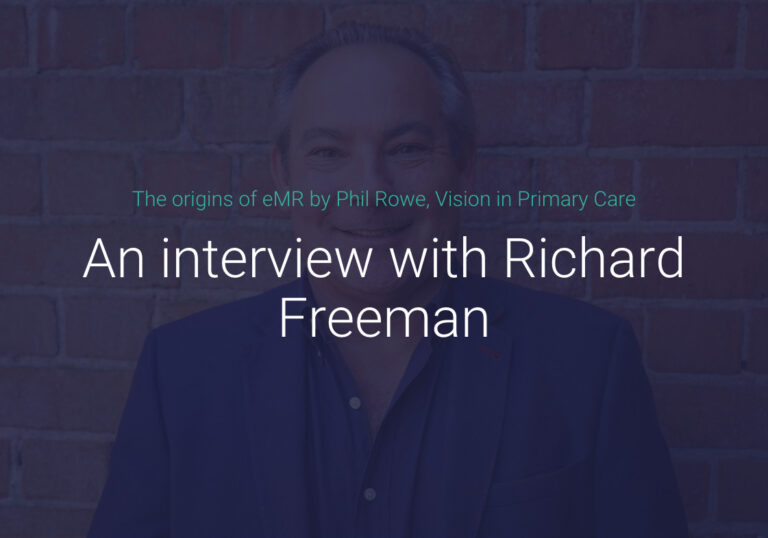The origins of eMR by Phil Rowe, Vision in Primary Care.
Could you start by giving us a brief background to your company and eMR?
“In March 2019, eMR was launched into Primary Care by MediData Exchange Limited.
eMR, an electronic patient medical reporting technology, is saving GP practices at least 50% in time and costs when processing SARs (Subject to Access Requests). It is offered to GP practices at no cost.”
How can a commercial business offer a highly sophisticated piece of software for free?
“You’re right- there are lot of people asking that question. Sometimes I think it may have been easier to have put a nominal charge on it!
The NHS is under significant financial pressure and it gives me great pride that we can provide this amazing time-saving product to them for free. We have devised a business model where we able to do that, where it really is a win-win for all stakeholders.”
“We have devised a business model where we able to do that, where it really is a win-win for all stakeholders”
Richard Freeman
“The value we have created for third parties such as insurers, means they are willing to pay for a medical report which includes a transaction fee to us and a separate fee to the GP practice. When GDPR came into force in May 2018, we immediately recognised the enormous negative impact this was having on GP practices. So, we made a decision to concentrate the development of eMR, together with GPs and practice managers, on SARS and delay the launch of the AMRA (insurance medical reports) features, to help primary care deal with the GDPR impact.”
Could you explain more about the development of eMR?
“Since we started working on eMR in 2016, GPs and practice managers have been involved in its development and design. We listened to their frustrations regarding the current highly inefficient processes and what was needed to allow our customers to work smarter.
“We ensured that eMR offered options of how to work, so that GP Practices were not confined to one vanilla process. This is most evident when GDPR impacted primary care. Aside from the loss of revenue, it impacted how data should be handled by the practice, patient and authorised third parties.
“We scoped out with GP practices, processes containing high levels of governance, allowing the GP practice to electronically facilitate access to patient data whilst protecting both themselves and the patient. The team quickly responded to our customers’ suggestions and requirements, and that led to a successful launch of eMR in March this year.
“Our team is now focused on completing the AMRA features to eMR, which is the rollout of the fee-paying medical reports from which MediData receives a separate transaction fee from our clients.”
So, in effect you ‘took a hit’, for the benefit of your customers?
“It probably sounds corny to say this, but like many people, I am very proud of the NHS and the outstanding work and dedication performed every day by its medical staff and employees. When you experience first-hand the care provided by this great institution and you then have an opportunity to give something back, why wouldn’t you?”
“When you experience first-hand the care provided by this great institution and you then have an opportunity to give something back, why wouldn’t you?“
Richard Freeman
“I believe, borne out by the numerous testimonials from our customers, that eMR delivers what it says on the tin, which is that it is really simple for our customers to use, it generates enormous efficiencies and provides robust governance for the GP practice.
“eMR is already operational in 115 CCGs, thereby creating the necessary footprint in primary care, needed to successfully service the needs of our fee-paying clients.”
But will it really be free forever, as you say?
“I have never felt, nor will ever feel, the need to charge primary care for eMR and its support and managed services. This would be counter intuitive to my beliefs and indeed to establishing a healthy eco-system within which all parties benefit.
“By being transparent about our business model, I hope you can see rationale behind my decision not to charge GP practices for eMR.”










